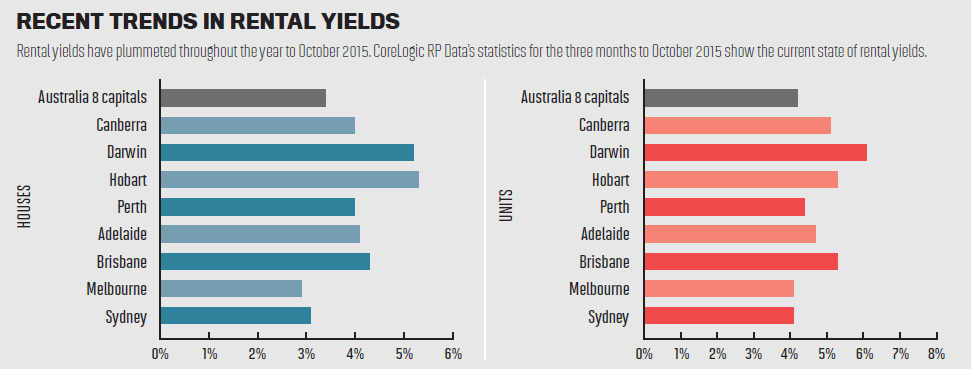Figures from PIPA show investors hold mortgage brokers in high esteem and PIPA chair Ben Kingsley says he sees the strong use of mortgage brokers by investors to secure finance only increasing.
Australian property investors are maintaining a positive outlook in spite of tightened lending by banks, and housing bubble warnings, according to Property Investment Professionals of Australia’s (PIPA’s) 2015 Property Investor Sentiment Survey.
Although the survey showed that APRA’s crackdown on residential investment lending has had an impact, with 32% of respondents saying changes to lenders’ policies have impacted on them, 60% of all investors are still looking to buy a property in the next six to 12 months and only 20% said concerns over a property bubble had caused them to put their plans on hold.
Sixty-three per cent are confident that it’s still a good time to invest in property, and investor sentiment clearly shows that mortgage brokers are a vital source of finance for investors, with two-thirds (66%) of respondents saying they had worked with mortgage brokers to fund their last deal and nearly three-quarters saying they were likely use the services of mortgage brokers to fund their next deal.
PIPA chair Ben Kingsley told MPA the survey participants were a “sophisticated, advanced audience” who knew their preferred investment strategy, with over 67% of survey respondents having a multiple-property portfolio.
Kingsley says brokers are so valued by investors because they are not trying to sell a product, which is more the realm of the direct lenders.
“I think it’s because a broker has enough time to spend with [the investor] and is asking the right questions as a trusted adviser should – around getting the strategy and the structuring of the lending right that’s appropriate,” he says.
“I think the proposition of the broker is significantly stronger than that of the direct lending channel.”
But he says for brokers thinking of expanding into an investment offering, investor clients are a big undertaking, and if brokers approach it as generalists, they are likely to be outpointed by sector specialist brokers already playing in the space.
“We’re a big believer that if you want to be in the investor space you’ve got to do the right thing by the client – so you need to be an investor-savvy mortgage broker in our view. You need to understand the strategy and structuring required; servicing calculators and multiple lender options.”
But although the majority of investors remain unperturbed about the long-term investment outlook, Kingsley says APRA’s restrictions have had an impact.
“The survey indicates that there is no doubt that the regulatory changes that have taken place have impacted those with an existing portfolio because they’re saying it’s getting harder for them to borrow money; so make no mistake, APRA’s changes have made an impact.
“But I call on the regulators to be very careful in making further clampdowns, because the reality is we’re starting to see the fruits of their decisions now, and that’s going to slow down those who may be keen to buy.”

Although the survey showed that APRA’s crackdown on residential investment lending has had an impact, with 32% of respondents saying changes to lenders’ policies have impacted on them, 60% of all investors are still looking to buy a property in the next six to 12 months and only 20% said concerns over a property bubble had caused them to put their plans on hold.
Sixty-three per cent are confident that it’s still a good time to invest in property, and investor sentiment clearly shows that mortgage brokers are a vital source of finance for investors, with two-thirds (66%) of respondents saying they had worked with mortgage brokers to fund their last deal and nearly three-quarters saying they were likely use the services of mortgage brokers to fund their next deal.
PIPA chair Ben Kingsley told MPA the survey participants were a “sophisticated, advanced audience” who knew their preferred investment strategy, with over 67% of survey respondents having a multiple-property portfolio.
Kingsley says brokers are so valued by investors because they are not trying to sell a product, which is more the realm of the direct lenders.
“I think it’s because a broker has enough time to spend with [the investor] and is asking the right questions as a trusted adviser should – around getting the strategy and the structuring of the lending right that’s appropriate,” he says.
“I think the proposition of the broker is significantly stronger than that of the direct lending channel.”
But he says for brokers thinking of expanding into an investment offering, investor clients are a big undertaking, and if brokers approach it as generalists, they are likely to be outpointed by sector specialist brokers already playing in the space.
“We’re a big believer that if you want to be in the investor space you’ve got to do the right thing by the client – so you need to be an investor-savvy mortgage broker in our view. You need to understand the strategy and structuring required; servicing calculators and multiple lender options.”
But although the majority of investors remain unperturbed about the long-term investment outlook, Kingsley says APRA’s restrictions have had an impact.
“The survey indicates that there is no doubt that the regulatory changes that have taken place have impacted those with an existing portfolio because they’re saying it’s getting harder for them to borrow money; so make no mistake, APRA’s changes have made an impact.
“But I call on the regulators to be very careful in making further clampdowns, because the reality is we’re starting to see the fruits of their decisions now, and that’s going to slow down those who may be keen to buy.”




